Clinical Research Graduate Group
About Our Faculty
The Clinical Research Graduate Group is an interdisciplinary group of over 60 faculty involved in all aspects of clinical and translational research offered at UC Davis. Our research and interests encompass varied branches of research, including basic science, biostatistics, clinical trials, education, epidemiology, ethics, outcomes research, policy/regulation, public health, quality improvement, and translational research. Thanks to the resources available through the Clinical and Translational Science Center and the potential for connections and networking offered by mentors in the graduate group, our students will have broad and impactful research opportunities. We encourage potential applicants to explore the profiles of our faculty and connect with them, as well as review the admissions criteria and curriculum requirements.
Many of our faculty members are graduates of the Clinical Research M.A.S. degree and were able to navigate through successful academic careers, achieve leadership roles, obtain federal independent funding, and establish productive research programs. Students will have access to formal research training and mentorship, dedicated mentors and academic advisors, and the opportunity to grow as independent scientists.
We are included in a thriving university that has been ranked as a national leader in primary care training, and UC Davis Health is a growing institution with the #1 ranked hospital in Sacramento. This setting represents a unique opportunity for our students’ academic and research ambitions, with the potential to conduct research that is highly valuable for our community.
Our program values collaborations, networking, and innovation, and we look forward to welcoming the next cohort of students.
Our Mission
We aim to empower a new generation of exceptional clinical and translational investigators to advance human and animal health. The program will provide students with the foundations for disciplinary excellence, including the knowledge, skills and perspective to engage in interdisciplinary investigations that will result in innovation and accelerated rates of translation of basic biomedical science into clinically useful therapies. Our fundamental goal is to develop a qualitatively different investigator who thrives in a multidisciplinary, team science environment, is committed to excellence, and has the skills to conduct innovative research leading to the practical application of biomedical discoveries that will improve human health, and thus enhance the quality of life in our communities.
Clinical Research Graduate Group Faculty
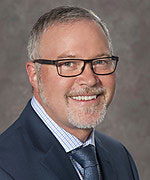
John Douglas McPherson, Ph.D. | jdmcpherson@ucdavis.edu
John McPherson is the Deputy Director of the UC Davis Comprehensive Cancer Center and a professor in the Department of Biochemistry and Molecular Medicine. He has deep expertise in DNA sequencing and cancer genomics through his involvement in the Human Genome Project and large-scale tumor sequencing as a founding member of the International Cancer Genome Consortium. His current interests lie in bringing advanced genomic technologies to clinical application in personalized diagnosis and targeted therapeutics, maximizing the data yield from small biopsies and circulating cell-free DNA, and in the role of DNA repair in carcinogenesis.
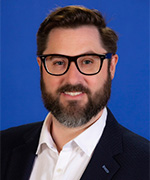
Mark Fedyk, Ph.D. | mfedyk@ucdavis.edu
Mark Fedyk provides teaching and mentorship for medical and nursing students, ensures that ethical considerations play a prominent role in the joint missions of the Betty Irene Moore School of Nursing at UC Davis and the UC Davis School of Medicine, and collaborates with researchers to develop cutting-edge techniques for advancing the integration of ethical inquiry and scientific research. He directs the ethics-related teaching and consulting activities of the UC Davis Clinical and Translational Science Center.
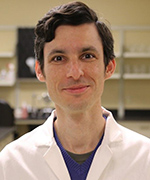
Fernando Fierro, Ph.D. | ffierro@ucdavis.edu
Fernando Fierro's primary research interest is stem cells, at both their basic biology and their application in developing novel cell-based therapies. Since 2002, he has focused on human mesenchymal stromal cells (MSC) and their potential to repair damaged tissue, either by differentiation or as trophic mediators, modulating immune response, promoting angiogenesis, and other necessary adjacent healing functions. His current projects focus on evaluating the role of oxygen tension, growth factors and microRNAs in MSC-mediated tissue repair.
Alice Tarantal, Ph.D. | aftarantal@ucdavis.edu
Alice Tarantal’s translational research program has a particular focus on the fetus and infant with ongoing studies that address early disease onset (inherited and acquired) and prenatal biomarkers, regenerative medicine (tissue engineering, stem cell transplantation) and gene therapy, lifespan health, and translational in vivo imaging.
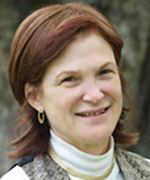
Rivkah Isseroff, M.D. | rrisseroff@ucdavis.edu
Roslyn (Rivkah) Isseroff is a professor in the Department of Dermatology at UC Davis Health and chief of the dermatology service with the VA Northern California Healthcare System, where she also heads the Wound Healing Clinic. Her research focuses on tissue repair and regeneration and how to translate these findings into new approaches to improve healing in patients with chronic, non-healing wounds.
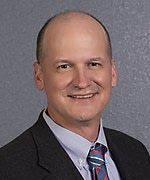
James Holmes, Jr., M.D., M.P.H. | jfholmes@ucdavis.edu
James F. Holmes, Jr. has presented grand rounds in trauma and pregnancy, pediatric abdominal trauma, and spinal trauma. He has studied various approaches to improving cost-effectiveness and quality of care in the emergency department, including clarifying the indications for computer tomography of head injuries and prospectively evaluating the role of laboratory tests in detecting unsuspected intra-abdominal injury in pediatric blunt-trauma patients.
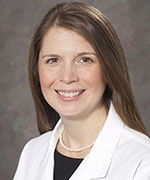
Bryn Mumma, M.D., M.A.S. | bemumma@ucdavis.edu
Before joining the faculty, Bryn Mumma completed a research fellowship during which she completed the Mentored Clinical Research Training Program and earned her M.A.S. in Clinical Research. She then completed the NHLBI (NIH National Heart, Lung and Blood Institute) K12 Research Career Development Program in emergency medicine. Her research focuses broadly on outcomes and systems of care in cardiovascular emergencies. She currently has a K08 Mentored Clinical Scientist Development Award from NHLBI to use a mixed-methods approach to study the factors affecting hospital performance in out-of-hospital cardiac arrest.
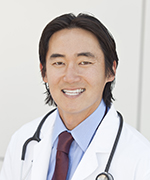
Daniel Nishijima, M.D., M.A.S. | dnishijima@ucdavis.edu
Daniel Nishijima's research focuses on the management of patients with acute traumatic or neurological emergencies, particularly those with coagulation disorders. He is the medical director and UC Davis Hub Liaison for the NCATS (National Center for Advancing Translational Sciences) funded Trial Innovation Network (TIN). He helps to identify and connect local investigators to integrate their clinical trials with the TIN to operationalize and enhance the efficiency of their clinical trials. He is also the Medical Director for the UC Davis CTSC Clinical Research Center, which assists with over 80 active clinical trials and protocols at UC Davis.
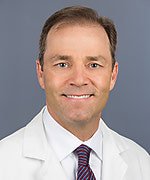
Joshua Fenton, M.D., M.P.H. | jjfenton@ucdavis.edu
Joshua Fenton is a professor and vice chair of research in the Department of Family and Community Medicine. His research focuses on screening, prevention, patient-doctor communication, and increasing the value and safety of primary healthcare. He has led observational studies using secondary data sources, including the linked SEER-Medicare database and health care claims data. His observational studies also included examining factors associated with patient and physician satisfaction and randomized trials of interventions to improve patient-physician communication in primary care and oncology or palliative care settings.
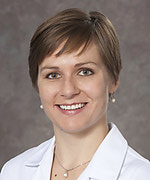
Elizabeth Magnan, M.D., Ph.D. | emagnan@ucdavis.edu
Elizabeth Magnan is board certified in family medicine and has a faculty continuity PCP clinical practice at the Lawrence J. Ellison Ambulatory Care Center where she also precepts family and community medicine residents in outpatient clinic care. Her research focuses on understanding and improving processes and outcomes of health care for patients with chronic conditions. She conducts neutral evidence analyses for the California State Legislature on proposed health insurance mandates through the California Health Benefits Review Program (CHBRP). Her teaching interests are in research, policy, social determinants or health, chronic conditions, and patient-centered care.
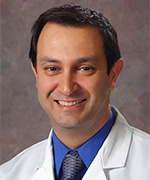
Mehrdad Abedi, M.D. | mabedi@ucdavis.edu
Mehrdad Abedi's clinical interest is in bone marrow transplantation and treating refractory/relapsed hematological malignancies and genetic diseases. He is also interested in using cellular therapy for the treatment of a variety of medical disorders. His basic science research interest is in the area of hematopoietic stem cells and novel models of bone marrow transplantation, as well as gene and cellular therapy.
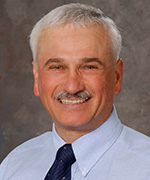
Timothy "Tim" Albertson, M.D., M.P.H. | tealbertson@ucdavis.edu
Tim Albertson is a leading expert in clinical pharmacology and toxicology, aeromedicine, and septic and adult respiratory distress syndrome. In addition to his role at UC Davis, he is a flight surgeon and chief of pulmonary and critical care medicine for the Veteran's Administration Northern California Health Care System.
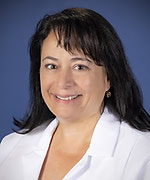
Rebecca Sue Boxer, M.D., M.S. | rsboxer@ucdavis.edu
Rebecca Boxer is professor and chief of the Division of Geriatrics Hospice and Palliative Medicine in the Department of Internal Medicine at UC Davis. She has broad research interests including frailty and functional decline, heart failure disease management, caring for patients with dementia, skilled nursing care, systems of care for older adults, polypharmacy, and social determinants of health in older populations. She has research expertise in conducting both randomized controlled trials, mixed methods studies and pragmatic clinical trials.
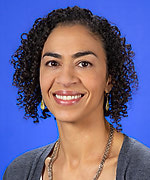
Susan Denise Brown, Ph.D. | sdmbrown@ucdavis.edu
Susan Brown's multidisciplinary program of research focuses on behavior change interventions for diabetes and cardiovascular disease prevention, particularly among women at high risk for chronic disease. She is especially interested in leveraging healthcare delivery systems to best support health promotion and risk reduction for patients.
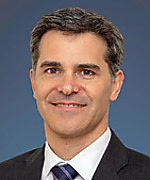
Martin Cadeiras, M.D. | mcadeiras@ucdavis.edu
Martin Cadeiras is a heart failure and heart transplant cardiologist offering care for patients with advanced and rare heart diseases, including heart failure with reduced ejection fraction (HFREF), heart failure with preserved ejection fraction (HFPEF), cardiomyopathies, pulmonary hypertension, heart transplantation, and mechanical circulatory support. He is particularly interested in the emerging field of precision medicine and the use of technology to improve healthcare access and delivery.
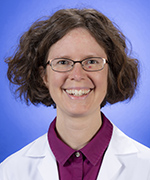
Michelle Dossett M.D., Ph.D., M.P.H. | mdossett@ucdavis.edu
Michelle Dossett is an assistant professor in residence in the Department of Internal Medicine and serves as associate medical director of physician well-being for UC Davis Health and medical director of the UC Davis Integrative Medicine Clinic. She is a general internist and physician-scientist whose research focuses on integrative medicine in two primary areas. The first is understanding how contextual factors and enhanced patient-clinician interactions contribute to improved health outcomes. Her second area of research focuses on understanding the health benefits of mind-body medicine approaches for patients and clinicians.
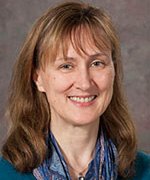
Angela Haczku, M.D., Ph.D. | haczku@ucdavis.edu
Angela Haczku is a professor of medicine and director of the UC Davis Lung Center. She is a respiratory immunologist focusing on the pathogenesis of allergy, asthma, COPD and pulmonary infections. She is interested in studying the effects of environmental exposures such as air pollution, cigarette smoking and psychosocial stress on airway inflammation. She has developed in vivo (animal) and in vitro models to investigate disease mechanisms and treatment.
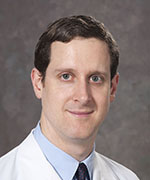
Stephen Henry, M.D., M.Sc. (Program Chair) | sghenry@ucdavis.edu
Stephen Henry is a primary care physician and health services researcher who focuses on the broad topic of chronic pain and opioid use. His clinical research focuses on developing programs to understand and improve patient-clinician communication about pain in primary care. His public health research focuses on controlled substance epidemiology in California, with a focus on predicting and reducing opioid-related overdose and other harms. He is a native of Louisiana and has worked at UC Davis since 2012.
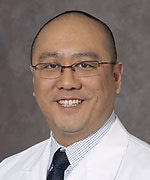
Edward Jae-Hoon Kim, M.D., Ph.D. | jhkim@ucdavis.edu
Edward Kim is an adult medical oncologist who specializes in the medical treatment of gastrointestinal malignancies, including pancreatic, hepatocellular, biliary, esophageal, gastric, and colorectal cancers. His research includes developing and conducting clinical trials for gastrointestinal malignancies. He has a particular interest in translational and clinical research for pancreatic cancer.
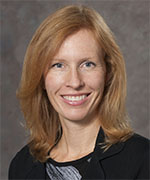
Theresa Keegan, Ph.D., M.S. | tkeegan@ucdavis.edu
Theresa Keegan is a cancer epidemiologist with primary research interests in studies of cancer outcomes and cancer survivorship. She has worked extensively with population-based cancer registry data both alone and linked to other administrative databases to understand patterns of cancer treatment, complications, chronic medical conditions, late effects and survival. Keegan also has been involved with multiple studies examining patient experiences with cancer and patient-reported outcomes after cancer diagnosis.
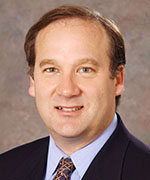
Nicholas "Nick" Kenyon, M.D. | njkenyon@ucdavis.edu
Nicholas Kenyon is the chief of the division of Pulmonary, Critical Care and Sleep Medicine and a physician-scientist with a translational research focus on adult severe asthma. His areas of emphasis are asthma therapeutics, L-arginine metabolism, breath diagnostics, and environmental/non-allergic asthma. He recently completed an NHLBI-funded Phase II clinical trial of L-arginine supplementation in severe asthma based on mouse model work in our laboratory.
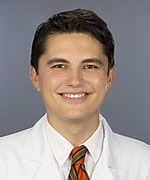
Brooks Kuhn, M.D., M.A.S. | btkuhn@ucdavis.edu
Brooks Kuhn is a pulmonology and critical care specialist. He has a particular interest in the care of patients with chronic obstructive pulmonary disease (COPD), alpha-1 anti-trypsin deficiency, and patients receiving mechanical ventilation.
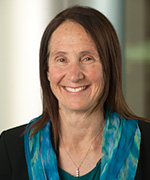
Nancy E. Lane, M.D. | nelane@ucdavis.edu
Nancy Lane is an endowed professor of medicine, rheumatology, and aging research, director of the Center for Musculoskeletal Health, director of the K12 NIH Building Interdisciplinary Research Careers in Women’s Health (BIRCWH) program, and principal investigator of the NIH-funded Program on Sex Differences in Musculoskeletal Diseases Across the Lifespan at the UC Davis School of Medicine.
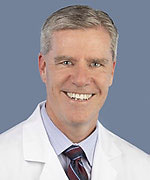
John F. MacMillan, Jr., M.D. | jfmacmillanjr@ucdavis.edu
John MacMillan is a general internist whose care focuses on the hospitalized adult patient. In addition, he is board certified in hospice and palliative medicine and is particularly interested in working with adult patients and families dealing with life-limiting medical illnesses.
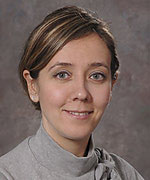
Valentina Medici, M.D, M.A.S. | vmedici@ucdavis.edu
Valentina Medici is a graduate of the University of Padova Medical School in Italy where she also completed her gastroenterology and hepatology fellowship. She conducted basic science research with the Mucosa Immunology Group at the University of Kiel, in Germany. Medici completed the Mentored Clinical Research training program at UC Davis and started at UC Davis in 2008. She completed the Nestle Clinical Nutrition Fellowship at Oregon Health & Science University and the University of Louisville.
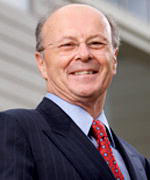
Frederick "Fred" Meyers, M.D. | fjmeyers@ucdavis.edu
A member of the UC Davis faculty since 1982, Fred Meyers has distinguished himself as a national expert in hematology and oncology, with a particular emphasis on cancer molecular biology, metastatic cancer, end-of-life care and pain management. He served as chair of the Department of Internal Medicine for 12 years, senior associate dean for academic affairs, and medical director of home health services.
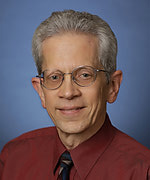
Patrick Romano, M.D., M.P.H. | psromano@ucdavis.edu
Patrick Romano is a professor of Medicine and Pediatrics at the UC Davis School of Medicine. He graduated from Princeton University, Georgetown University School of Medicine, and the School of Public Health at the University of California Berkeley. He completed joint training in internal medicine and pediatrics at Case Western Reserve University Hospitals, followed by fellowship training in health services research and clinical epidemiology at the University of California San Francisco.
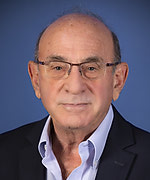
Saul Schaefer, M.D. | sschaefer@ucdavis.edu
Saul Schaefer has an active laboratory studying how to prevent and treat heart failure. Using a genetically modified mouse model, Schaefer is trying to understand the metabolic abnormalities seen in heart failure. He is using that knowledge to develop new and unique treatments that could be used in patients with, or at risk for, heart failure.
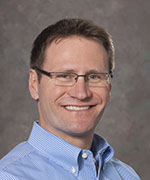
Michael Schivo, M.D., M.A.S. | mschivo@ucdavis.edu
Michael Schivo has been a part of UC Davis for over ten years. He began as a trainee in Internal Medicine and progressed as a chief resident, fellow in Pulmonary and Critical Care Medicine, and a master's student in clinical research. He has been through the CTSC KL2 program and has gained independent extramural funding through the NIH and the private sector. He studies metabolites emanating from human and animal airways as a diagnostic platform and thoroughly enjoys mentoring trainees of all levels.
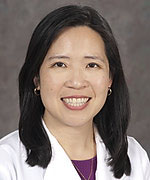
Elisa Tong, M.D. | ektong@ucdavis.edu
Elisa Tong is a general internist who has had substantial training in quantitative research methods and experience conducting quantitative and qualitative work in her research. She has been an AANCART pilot investigator and AANCART Clinical Director at UCSF. As the current Research Director for AANCART Sacramento, she has worked closely with the community partner, the Hmong Women’s Heritage Association, on the research design of their breast and cervical cancer research projects.
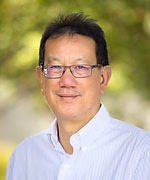
Ted Wun, M.D. | twun@ucdavis.edu
Ted Wun is the director and principal investigator of the UC Davis Clinical and Translational Science Center. He is also associate dean for clinical and translational research and serves as MPI of the California Cancer Reporting and Epidemiologic Surveillance (CalCARES) program, which manages the California Cancer Registry. As associate dean for research, he is responsible for expanding high-impact, interdisciplinary research with a focus on clinical research broadly defined.
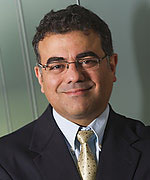
Amir Zeki, M.D. | aazeki@ucdavis.edu
Amir Zeki’s clinical subspecialty and research focus is on airway diseases, including asthma and chronic obstructive pulmonary disease (COPD). Broadly, his research interest is in the lipid/metabolic regulation of airway inflammation and remodeling, specifically the mevalonate (MA) and cholesterol pathways related to the pathogenesis of severe asthma and COPD.
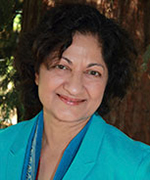
Satya Dandekar, Ph.D. | sdandekar@health.ucdavis.edu
Satya Dandekar is a professor of Microbiology and the chairperson of the Department of Medical Microbiology and Immunology at UC Davis and has a joint appointment in the Department of Internal Medicine, Division of Infectious Diseases, School of Medicine. Dandekar's research program is focused on the molecular pathogenesis of human immunodeficiency virus (HIV) and simian immunodeficiency virus (SIV) infections with special emphasis on gastrointestinal mucosal lymphoid tissue (GALT) as a major target organ of the viral infection and as a viral reservoir. Current studies have been focused on determining the molecular mechanisms of the disruption of gut mucosal immune system in HIV infection and restoration during anti-retroviral therapy. Her research has utilized the SIV infected rhesus macaque model to investigate the pathologic effects of viral infection on the gut mucosal immune system and function.
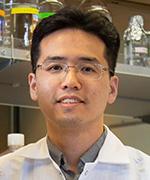
Chang-il Hwang, Ph.D., D.V.M. | cihwang@ucdavis.edu
The Hwang lab studies how genetic and epigenetic alterations contribute to pancreatic cancer progression and exploits epigenetic vulnerabilities in cancer therapeutics. Hwang has established pancreatic organoid models of human and mouse pancreatic cancer and utilized these models to understand the epigenetic landscape of disease progression.
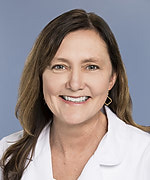
Michelle L. Apperson, M.D. Ph.D. | mlapperson@ucdavis.edu
Michelle Apperson's research interests include clinical trials of novel multiple sclerosis treatments and the identification of multiple sclerosis biomarkers. She is conducting genetic, genomic and other biochemical blood profiling to elucidate further the relationship between genetics and environmental factors in the autoimmune etiology of multiple sclerosis.
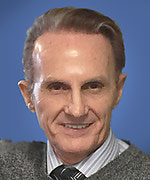
Ricardo Maselli, M.D. | ramaselli@ucdavis.edu
Ricardo Maselli is a triple board-certified neurologist (neurology, clinical neurophysiology and electromyography) with expertise in the physiology of neuromuscular transmission, synaptic electrophysiology, molecular biology, and neurogenetics. He is a professor in the Department of Neurology and Director of the UC Davis Medical Center Electromyography Laboratory. His research focuses on finding cures for congenital myasthenic syndromes and motor neuron diseases.

Oanh Le Meyer, Ph.D., M.A.S. | olmeyer@ucdavis.edu
Oanh Le Meyer received her Ph.D. in social psychology and her Masters in Advanced Study in Clinical Research at UC Davis. She studies cognitive and mental health differences in racial/ethnic minorities and older adults from a broad population level and also at the individual level. Her current research interests include dementia caregiving and mental health, social determinants of cognitive decline associated with dementia in mental health for older adults. She is currently working with community partner organizations to develop and implement an intervention to help Vietnamese Americans taking care of a family member with dementia.
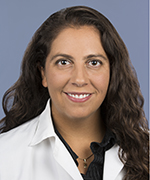
Kristin Grimsrud D.V.M., Ph.D. | kngrimsrud@ucdavis.edu
Kristin Grimsrud is an associate clinical professor in the Department of Pathology and Laboratory Medicine in the School of Medicine. Additionally, she is the associate director of Vivaria and Veterinary Care at the UC Davis Mouse Biology Program and is a clinical researcher at Shriners Children’s Hospital Northern California. Her research interests focus on pharmacogenetics and characterizing individual variation in drug pharmacokinetics in special populations, specifically, burn and pediatric patients, and the development of translational animal models.
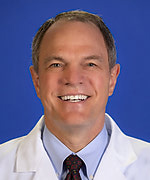
James Marcin M.D., M.P.H. | jpmarcin@ucdavis.edu
James Marcin is a professor in the Department of Pediatrics at the UC Davis School of Medicine and director of the Center for Health and Technology at UC Davis Health. In addition to his clinical work in the Pediatric ICU, he conducts research and advocacy in telehealth related to access and quality of care, particularly as it relates to children with special healthcare needs and acutely ill and injured children in rural communities.
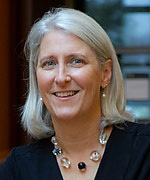
Sally Ozonoff, Ph.D. | sozonoff@ucdavis.edu
Sally Ozonoff's research at the MIND Institute focuses on very young children with autism. She has been funded to study the onset of autism for over 15 years through a prospective investigation that follows high-risk infants from shortly after birth through age 3. She and her team have also been developing innovative methods for screening for autism using video. Ozonoff has co-authored over 100 publications, written four books, and contributed many book chapters to her field.
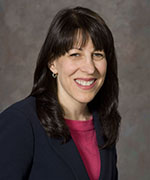
Julie Schweitzer, Ph.D. | jschweitzer@ucdavis.edu
Julie Schweitzer is a professor in the Department of Psychiatry and Behavioral Sciences. She directs the Attention, Impulsivity, Regulation (AIR)/Attention Deficit Hyperactivity Disorder (ADHD) program at the UC Davis MIND Institute. Her work is translational in nature. She uses cognitive neuroscience and behavior analytic principles to investigate attention and impulsivity in children and adults with typical development and with ADHD. She is also developing tech-based interventions using virtual reality and gameplay to improve attention, self-control and academic functioning.
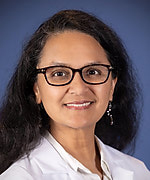
Manpreet Singh, M.D., M.S. | mpksingh@ucdavis.edu
Manpreet Singh's work at UC Davis has a three-fold mission: 1) to investigate the origins and pathways for developing major mood disorders and in processes that protect and preserve function after disorder onset; 2) to recruit, train, and sustain the next generation of basic, translational, and clinical researchers in psychiatry; and 3) to evolve clinical care in ways that lead to better outcomes. Taking a translational medicine approach, Singh’s research aims to address unmet clinical needs through bridging fundamentals in science to clinical practice. She applies cutting edge tools to optimize existing therapeutic targets through innovations in trial design, investigations of placebo response, and pursuit of novel therapeutic targets through reverse and forward translation, fast-fail clinical trials, and direct modulation of key brain regions using transcranial magnetic stimulation and real-time neurofeedback. Her lab conducts mechanistic and comparative effectiveness trials alongside safety assessments of existing and novel interventions that reduce illness burden and optimize functioning.
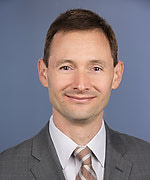
Jeffrey S. Hoch, Ph.D. | jshoch@ucdavis.edu
Jeffrey Hoch is professor and chief of the Division of Health Policy and Management in the Department of Public Health Sciences. He is also the associate director of the Center for Healthcare Policy and Research. Dr. Hoch’s research expertise is on cost effectiveness and value in health care. He teaches courses related to health economics, including “Principles & Methods of Comparative Effectiveness Research.” He has authored or co-authored more than 200 peer-reviewed articles.
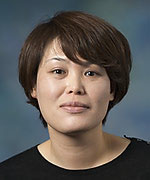
Kyoungmi Kim, Ph.D. | kmkim@ucdavis.edu
Kyoungmi Kim is a faculty biostatistician with extensive experience in statistical genetics/genomics in particular and in -omics research in general. Her research interests include disease biomarkers, quantitative genetics, post-genomics, and statistical and research methodology.
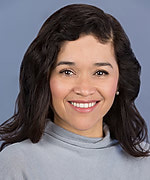
Miriam Nuño, Ph.D. | mnuno@ucdavis.edu
Miriam Nuño's research interests focus on the design and analysis of observational studies, primarily in the context of public health research. Her research emphasizes three areas: comparative effectiveness research in cancer, causal inference methods, and application of mathematical models with observational data to predict patient outcomes.
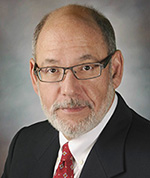
Bradley Pollock, Ph.D. | bpollock@ucdavis.edu
Bradley Pollock is a leading researcher on the incidence and control of childhood and adolescent cancer and is the chair of the Department of Public Health Sciences at UC Davis School of Medicine.
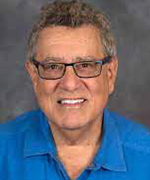
David Rocke, Ph.D. | dmrocke@ucdavis.edu
David Rocke serves as director of the CTSC Research Design and Biostatistics program. He is the vice chair of the Department of Public Health Sciences, as well as a distinguished professor in the Division of Biostatistics. He is also a distinguished professor in the Department of Biomedical Engineering and the director of the UC Davis Center for Biomarker Discovery. Rocke directs a research group aimed at bioinformatics and data analysis of gene expression arrays, proteomics, metabolomics, and other high-throughput biological assays. He has successfully fostered productive collaborations at UC Davis and nationwide, and he represents the CTSC at the national consortium level.
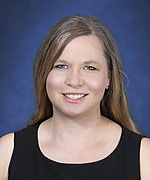
Rachael A. Callcut, M.D., M.S.P.H., F.A.C.S. | racallcut@ucdavis.edu
Rachael Callcut has a broad health services research and data science portfolio focused on clinical outcomes research in trauma and critical care and is an investigator in ongoing multicenter clinical trials examining resuscitation outcomes. She also leads a lab investigating the role of inflammation and coagulopathy in critical illness and injury. Her group has specific expertise in novel therapies for treating Acute Respiratory Distress Syndrome (ARDS).

Candice Anne Marcum Sauder, M.D., F.A.C.S. | camsauder@ucdavis.edu
Candice Sauder is a fellowship-trained breast surgeon who specializes in all areas of breast surgical care. She provides comprehensive breast cancer care using the least invasive methods of treatment following oncoplastic principles, often in conjunction with her plastic surgery colleagues. Her academic interests include surgical education, the application of teaching techniques to surgical trainees, triple-negative breast cancer, and premenopausal breast cancer patients.
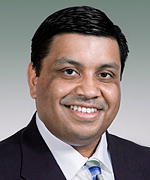
Soman Sen, M.D., M.A.S., M.S. | somsen@ucdavis.edu
Soman Sen's research has focused on the clinical outcomes of patients who have suffered a burn injury. During his time as a physician and researcher he obtained a master’s degree in clinical research (NIH K30) to help him design and implement clinical trials to improve the care and treatment of burn patients. This coupled with his experience as a member and committee vice chair of the UC Davis Institutional Review Board has provided great insight into developing clinical trials. His overall goal is developing optimal care guidelines and strategies that not only improve the survival of burn patients but also improve their quality of life.
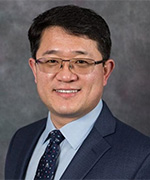
Aijun Wang, Ph.D. | aawang@ucdavis.edu
Aijun Wang is a Chancellor's Fellow, professor of surgery and biomedical engineering. He is the Vice Chair for Translational Research, Innovation and Entrepreneurship for the Department of Surgery, Co-Director of the Center for Surgical Bioengineering, and Dean's Fellow in Entrepreneurship at the UC Davis School of Medicine. He is also a Principal Investigator at the Institute for Pediatric Regenerative Medicine (IPRM) / Shriners Hospitals Pediatric Research Center, Northern California. Wang's research focuses on developing tools and technologies that combine molecular, cellular, tissue and biomaterial engineering to promote regeneration and restore function.
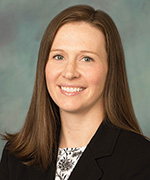
Julie Bidwell Ph.D., R.N. | jtbidwell@ucdavis.edu
Julie Bidwell’s research program applies innovative dyadic methods to traditional longitudinal and cross-sectional nonexperimental designs to advance our understanding of how cardiovascular patients and their family caregivers experience and manage life-threatening chronic illnesses together. Her primary contributions to psychosocial cardiovascular disease research involve advancing two major areas of inquiry. The first is examining disease management and symptom response as both an individual and family process. The second is the study of family caregiving impacts and care stress on clinical- and person-centered outcomes for patients and caregivers themselves.
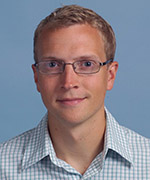
Jonathan Dear, D.V.M., M.A.S. | jddear@ucdavis.edu
Jonathan Dear is an assistant professor of clinical internal medicine at the School of Veterinary Medicine. His clinical work focuses on interventional urinary and respiratory procedures in dogs and cats while his research interests focus on infectious diseases of small animals. He completed the Mentored Clinical Research Training Program in 2018 and mentors veterinary students and house officers in internal medicine and clinical research.
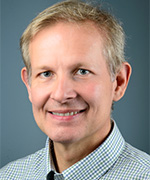
Denis Marcellin-Little, M.S., D.V.M, D.A.C.V.S. | djmarcel@ucdavis.edu
Denis Marcellin-Little is a professor of small animal orthopedic surgery. He was the recipient of the 2018 BioMedtrix Distinguished Teaching Award. His research interests include bio-modeling and the fabrication of custom orthopedic implants using metal 3D printing and other methods.
